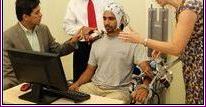
The California Assisted Living Association (CALA) has put together a great guide on how to best manage an elderly person's medications. We've talked about this a little in the past, but this is such an important concept and improper medication management can lead to major problems. The following tips are some of the highlights from the CALA's magazine article on the subject.
Everything starts out with proper communication. Everyone involved in the process needs to be in open dialogue with each other. This will help to eliminate any confusion.
The next step is to choose a time and location that has few distractions. By making medication dispensing a routine, you can expect things to fall into a pattern. This repetition will soon become a daily part of the person's life. If they are supposed to meet you at 8:00 every day in the kitchen area, this will be something that becomes just a routine part of their daily activities.
Having the dispensing process explained often and in a direct fashion will help to further cement the necessity of medications in the patient's mind. This is important because many times the elderly person will question why they must take their medications. Having a logical explanation ready will help alleviate this concern on their end of things. If they realize that taking their prescription is important, they will be more likely to take it.
Finally, you don't want to judge the person in regards to their medication. If they have had past problems with refusing to take their prescription, leave that in the past. Reinforce the idea that meds are important on a regular basis, but don't bring up the past. Treat each session as if it were a new one. This will help the person receiving the meds to see that you are kind and just want to help them out.
When an elderly person is in an assisted living facility, these things are much easier to control. But at home, there can be some big speed bumps that can get in the way of this process. Having a spouse dispensing meds can also be problematic as their emotions or own situation might get in the way. It is rd to do something that a loved one is adamantly against. If one doesn't want to take their medications, the spouse is more likely to give in than a trained professional would be.
Finally, you need to make sure that the person receiving meds is always safe. This transcends location. If they are at home, having a nurse come to the house to give them medications is the safest choice, although not always practical. Make sure that whatever system is being used is consistent and routine so that taking the medications at the right time becomes a habit, and not something that constantly needs to be remembered.
No comments:
Post a Comment